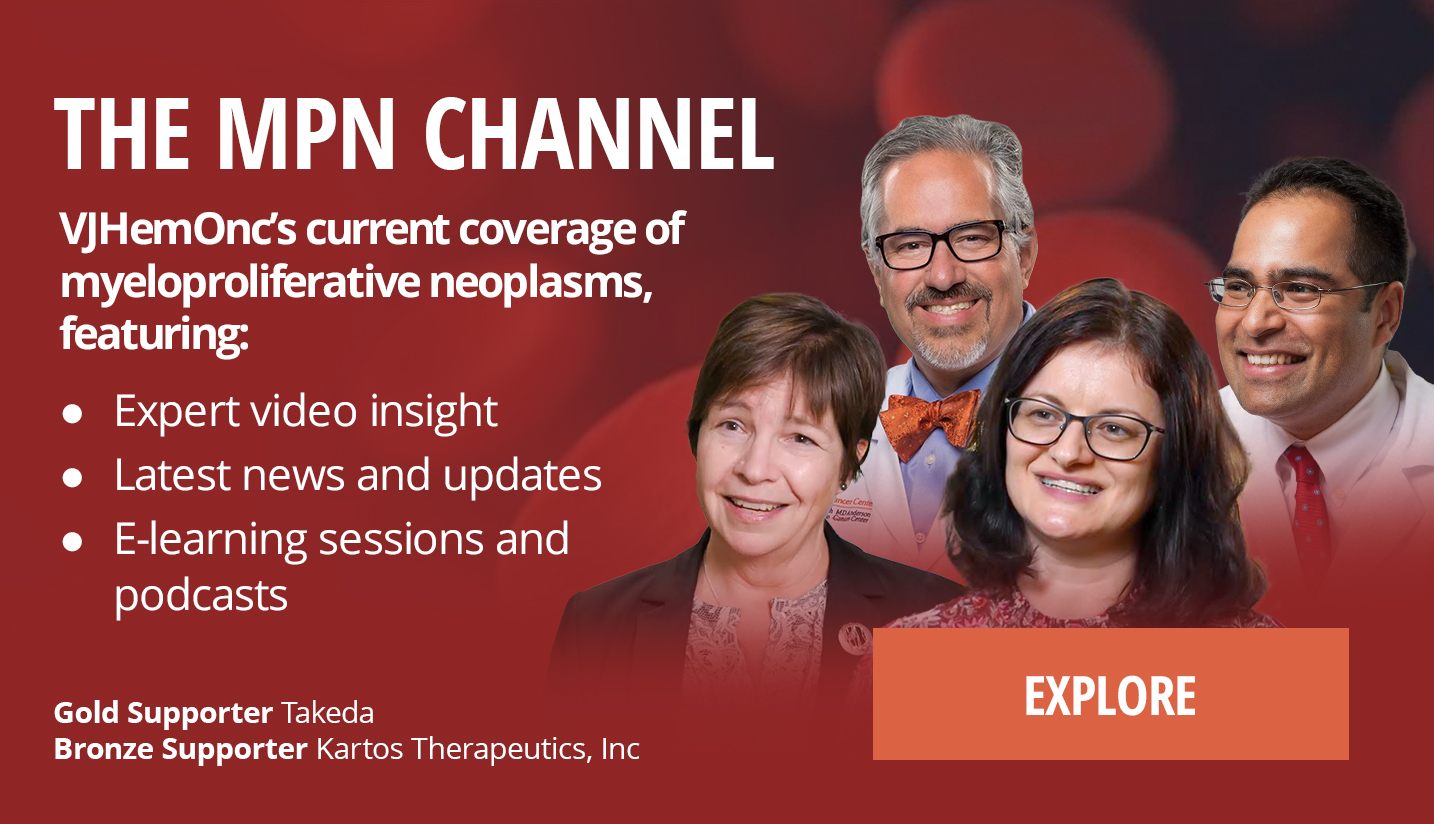I think the way we treat PV is going to change remarkably in the next few years. We have a lot of new therapies and we have old therapies that are showing us new evidence.
So interferons, ropeginterferon as an example, clearly is superior to hydroxyurea in terms of controlling counts, but also in reducing the allele fraction, which seems to associate with reductions in event-free survival...
I think the way we treat PV is going to change remarkably in the next few years. We have a lot of new therapies and we have old therapies that are showing us new evidence.
So interferons, ropeginterferon as an example, clearly is superior to hydroxyurea in terms of controlling counts, but also in reducing the allele fraction, which seems to associate with reductions in event-free survival. With ruxolitinib, we have very recent data that shows the same thing, that patients on ruxolitinib seem to have better event-free survival, and that, in fact, as the allele burden reduces, the likelihood of that response improves.
We have rusfertide and other agents like it that are going into clinical trials now that could eliminate phlebotomy needs in many patients. So this landscape is rapidly evolving.














